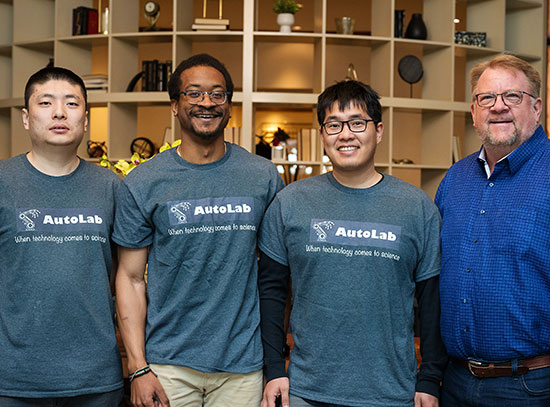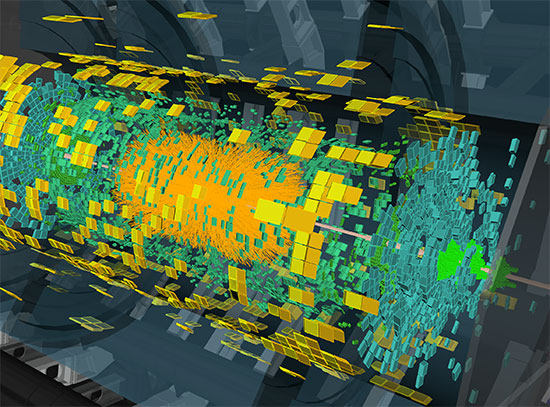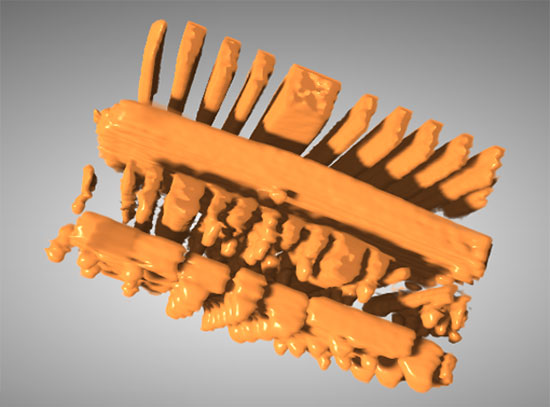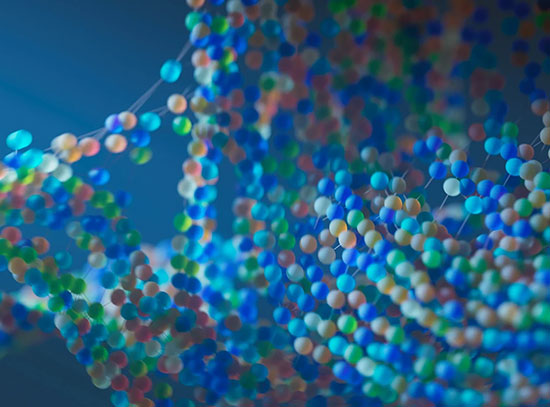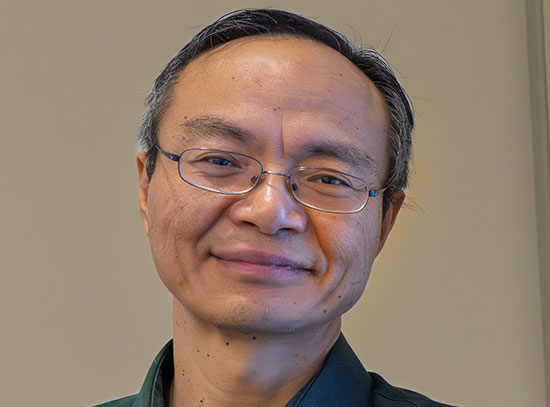535th Brookhaven Lecture on Wednesday, 6/26: Measuring the Elusive Neutrino
June 24, 2024
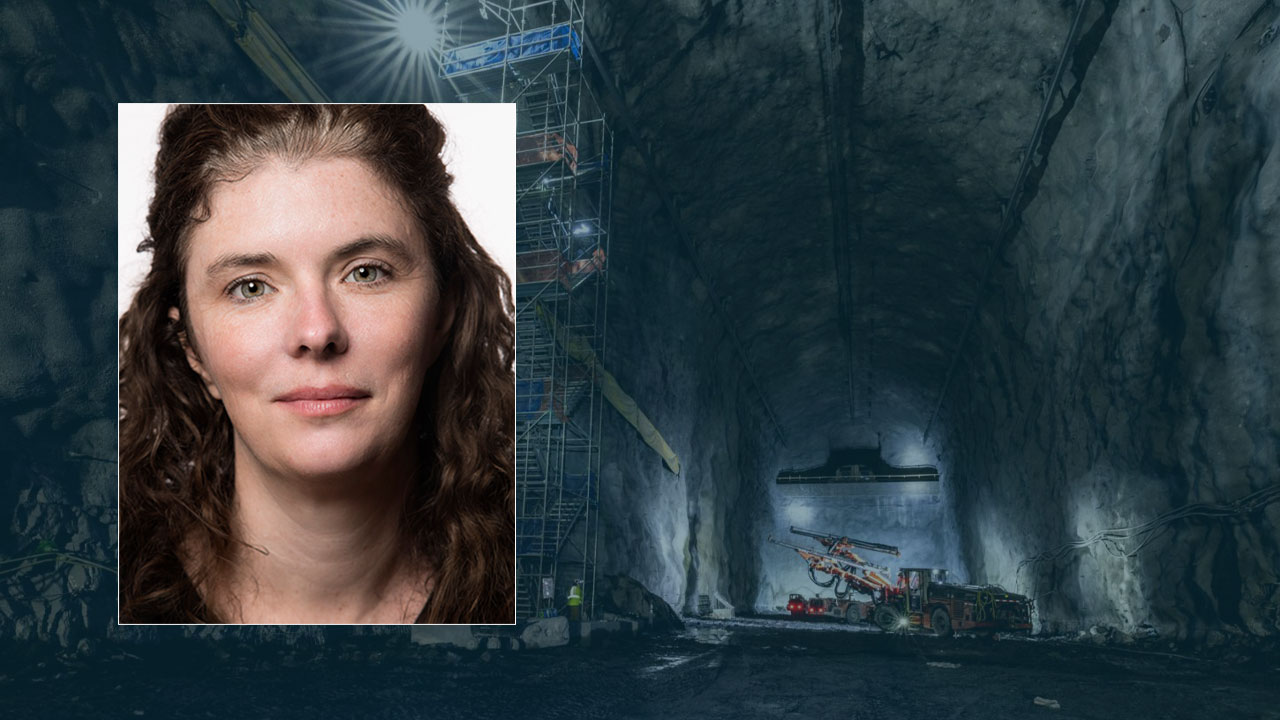
Elizabeth Worcester, Brookhaven Lab physicist (Reidar Hahn/Fermilab). Background photo: A cavern for the Deep Underground Neutrino Experiment (Matthew Kapust/Sanford Underground Research Facility)
Neutrinos are fundamental particles in our universe. They're everywhere, hard to catch and, oh, so small. In fact, neutrinos are so small that, for comparison, if a neutrino was scaled up to the size of a grain of sand, proportionally an actual grain of sand would become the size of the entire universe.
So how do we know these nearly-impossible-to-detect particles exist? How can we measure them? And what can they tell us about the origins of life and why the universe works the way it does?
All are invited to join Elizabeth Worcester of the U.S. Department of Energy's Brookhaven National Laboratory for the 535th Brookhaven Lecture on Wednesday, June 26. Her talk, titled "Measuring What You Can’t See: Precision Measurements of the Elusive Neutrino," will be held at 4 p.m. Attendees can join in two ways:
- In person in Physics Small Seminar Room (Bldg. 510, room is located just past the main entrance lobby). Note: Seating may be limited.
- Virtually on Zoom
During Worcester's talk, she will provide an overview on neutrinos and their place in the universe, as physicists understand today. She will discuss past neutrino experiments, including research that led to one of Brookhaven's seven Nobel Prize-winning discoveries. Worcester will then introduce measurements, uncertainty, detector technology, and the Deep Underground Neutrino Experiment (DUNE), which is being developed with support from Brookhaven Lab.
To join Worcester for dinner at an off-site restaurant after the talk, contact Tracy Trent (Ext. 4901).
About the Speaker
Elizabeth Worcester is a physicist in Brookhaven Lab's Physics Department and adjunct professor in Stony Brook University's Department of Physics and Astronomy. She is a member of DUNE collaboration and Short-Baseline Neutrino Program.
Worcester joined Brookhaven Lab as a postdoc in 2011. She was named assistant physicist in 2013. She was promoted to associate physicist in 2015 and her current role, physicist, in 2017.
As a past member of the Daya Bay Experiment, she shared the Breakthrough Prize in fundamental physics in 2015.
Worcester earned three degrees in physics: her Ph.D. from the University of Chicago in 2007, a master's from University of California at Los Angeles in 1998, and a bachelor's from Georgia Institute of Technology in 1997.
About the Brookhaven Lecture Series
The Brookhaven Lecture Series began in 1960. In the foreword to the first lectures, Brookhaven physicist Gertrude Scharff-Goldhaber wrote, "The Brookhaven Lectures, held by and for the Brookhaven staff, are meant to provide an intellectual meeting ground for all scientists of the Laboratory. In this role they serve a double purpose: they are to acquaint the listeners with new developments and ideas not only in their own field, but also in other important fields of science, and to give them a heightened awareness of the aims and potentialities of Brookhaven National Laboratory."
That tradition continues today.
Brookhaven National Laboratory is supported by the Office of Science of the U.S. Department of Energy. The Office of Science is the single largest supporter of basic research in the physical sciences in the United States and is working to address some of the most pressing challenges of our time. For more information, visit science.energy.gov.
Follow @BrookhavenLab on social media. Find us on Instagram, LinkedIn, X, and Facebook.
2024-21940 | INT/EXT | Newsroom




